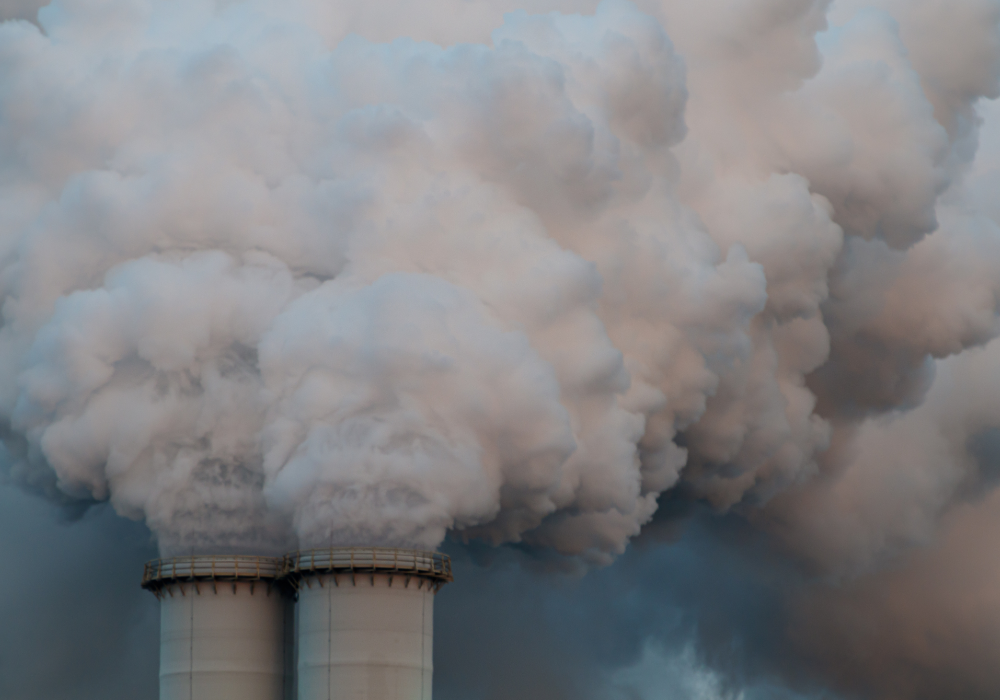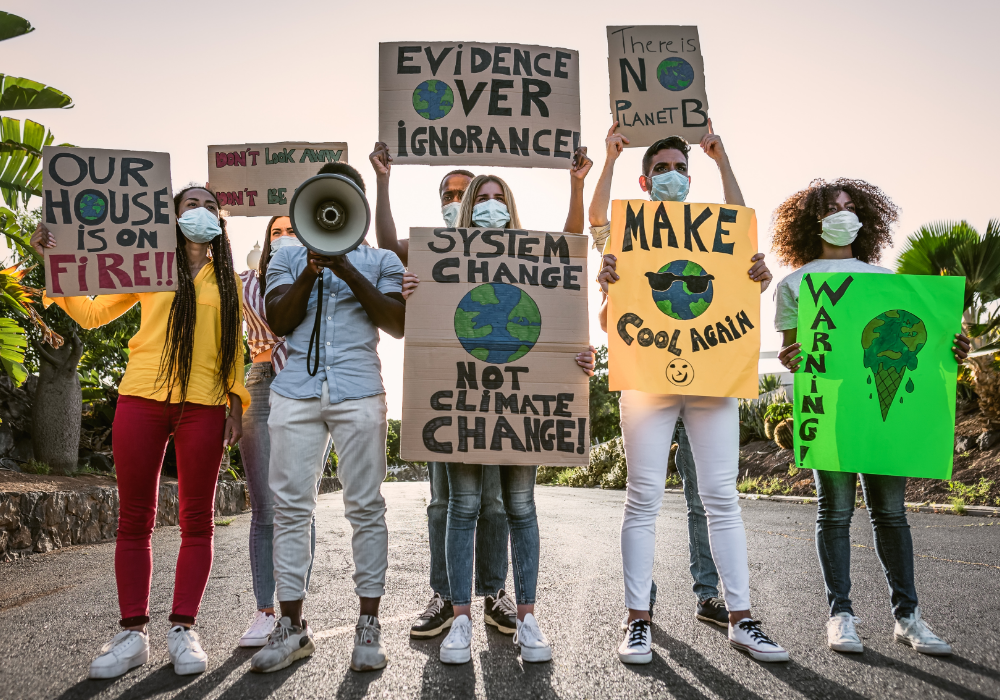When the world won’t listen, fury becomes survival.

Greta didn’t politely ask for change—she demanded it. And thank God she did, because the people in charge weren’t exactly racing to save the planet. Her anger wasn’t performative. It was the kind of rage that bubbles up when you’ve read the science, looked around, and realized most of the adults in the room are pretending everything’s fine. She didn’t scream for attention—she screamed because no one else would.
Her voice cut through the noise in a way facts alone couldn’t. And while critics called her too emotional, too dramatic, too young, she did something they never could—wake people up. Because anger isn’t always the problem. Sometimes it’s the most honest reaction to a broken system. These ten reasons show why Greta’s fury wasn’t just justified—it was essential. And if we’d listened sooner, we might not be where we are now.
1. World leaders kept making promises they never planned to keep.

Greta wasn’t mad just because climate change exists—she was furious because the people with power kept pretending they were fixing it. Year after year, politicians showed up at summits, nodded solemnly, and left with vague pledges and no binding commitments.
It’s performative politics at its worst: photo ops instead of progress. According to Damian Carrington for The Guardian, her “blah, blah, blah” verdict on world leaders captured that sentiment perfectly—she openly lambasted their empty words at Youth4Climate in Milan for offering no real change.
And Greta saw right through it. That’s what made her so threatening. She wasn’t impressed by hollow speeches or shiny campaigns. She wanted action—actual emission cuts, actual accountability, not “net zero by 2070” nonsense. Her rage was aimed directly at the smug indifference that passes for leadership. And while critics told her to be more respectful, she was simply done clapping for cowards. Honestly, we all should be.
2. Emissions didn’t slow down—they skyrocketed.

While countries bragged about “green transitions,” global carbon emissions kept climbing. Planes flew, oil flowed, and corporations expanded like there was no crisis at all. The science screamed for a U-turn, and the world hit the gas instead. That’s the backdrop to Greta’s fury—watching grown-ups gamble with everyone’s future while pretending they were heroes. Per writers for The United Nations Institute of Environment and Human Safety, global CO₂ emissions from fossil fuels soared to a record high in 2022—showing that despite talk of a green shift, actual emissions continued to rise.
Greta called out the hypocrisy, and she didn’t sugarcoat it. Because how do you stay calm when people are celebrating minor “improvements” as the planet melts? Her anger wasn’t about doom—it was about denial. The kind that delays action until it’s too late. Her critics wanted her to smile more and shout less, but silence wasn’t going to save us. She wasn’t mad for no reason. She was mad because no one else seemed to be.
3. Adults acted shocked that a teenager had more backbone than they did.

The backlash to Greta wasn’t just about what she said—it was about who she was. A teenage girl, autistic, Swedish, blunt. She didn’t play the game. She didn’t flatter egos. And that made a lot of powerful people uncomfortable. Especially when she had more moral clarity than most of them combined.
Instead of reflecting, critics mocked her age, her tone, her diagnosis. They called her a puppet, an angry child, even “mentally ill.” A 2019 E&E News report by Scott Waldman noted that such personal attacks—especially targeting her autism, age, and identity—became a go-to tactic to undermine her message.
But Greta never flinched. She kept showing up, kept speaking truth, even when the attacks got vicious. Her anger wasn’t immature—it was deeply informed. And in a world obsessed with optics and politeness, she reminded everyone that courage doesn’t come from experience. It comes from conviction.
4. Fossil fuel companies kept calling themselves the solution.

This might be the most infuriating part. The very companies responsible for the crisis—oil giants, gas conglomerates, petrochemical powerhouses—started branding themselves as “part of the transition.” They promised cleaner energy while drilling new wells. They sponsored climate conferences while silencing dissent. And people bought it.
Greta didn’t. She saw straight through the rebrand. Because when your solution is “more of the thing that caused the problem,” it’s not a solution—it’s a scam. Her rage was aimed at the greenwashing that turned destruction into PR. And when people told her to stop being so negative, she asked a better question: why aren’t you angry about being lied to? Her rage wasn’t reckless—it was laser-focused.
5. Climate science has been ignored for decades—and no one apologized.

We didn’t just find out about climate change last year. Scientists have been warning about this since the 1970s, and leaders ignored them. They ignored James Hansen in 1988. They ignored UN reports. They ignored wildfires and floods and vanishing ice. And they’re still ignoring too much.
Greta’s anger is inherited—from the scientists who shouted into the void, the frontline communities already suffering, and the young people growing up in a world that failed them. Her frustration isn’t that the problem exists—it’s that we had so much time to stop it, and chose comfort instead. There’s been no reckoning. No accountability. Just business as usual. That’s why she yells. Because history’s repeating—and this time, we can’t say we didn’t know.
6. Caring too much became a punchline in a world profiting from collapse.

Greta cried. She shook. She yelled. And people mocked her for it like that was the problem. Meanwhile, executives banked bonuses for selling out the future. Apparently, outrage is unprofessional—but oil money isn’t. Greta’s emotions weren’t weakness. They were truth cracking through the concrete.
She got torn apart for showing exactly what more of us should be feeling. Disgust. Grief. Urgency. In a culture that treats numbness as maturity, her unfiltered anger made people squirm. But it was real. That’s what made it powerful. Greta’s tears weren’t about losing control—they were about refusing to look away. When the world tells you to stay calm as everything burns, sometimes rage is the most rational response you can have. And she never apologized for it. She didn’t need to.
7. The biggest climate summits became a stage for performative progress.

Year after year, world leaders fly in, drop a few buzzwords, and leave the actual work unfinished. These summits look good on paper—until you check the outcomes. Emissions rise. Forests fall. And yet, everyone takes selfies like change is inevitable. Greta didn’t buy it, and she called them out with the bluntness they deserved.
She labeled it perfectly: “blah blah blah.” Empty promises wrapped in expensive suits. Her outrage wasn’t about one broken pledge—it was about decades of them. She made people admit what they didn’t want to see: that these events are PR therapy for the powerful.
And while some accused her of being disrespectful, she refused to celebrate incrementalism dressed up as revolution. Greta’s anger reminded us that optics aren’t progress—and that real change doesn’t come from polished speeches. It comes from pressure. Loud, public, unapologetic pressure.
8. Reporters kept grilling her while CEOs got off easy.

Every interview turned into a pop quiz. What’s the solution, Greta? What policy would you implement? Meanwhile, the guys funding the climate collapse were off somewhere writing checks and ducking accountability. No one demanded Exxon’s CEO explain how to fix the mess—but Greta? She had to solve everything by seventeen.
The double standard was exhausting. She was never allowed to just be an activist—she had to be the expert, the architect, the negotiator. But Greta never claimed to have all the answers. Her job wasn’t to blueprint the future. It was to wake people up. And she nailed it. She forced the real questions to the surface—not what she’d do, but why the people responsible weren’t doing anything at all. Her anger wasn’t misplaced. It was misdirected by people who wanted to dodge responsibility. And she refused to play along.
9. The louder she got, the more they made it personal.

Greta’s fight was global, but the attacks against her were petty, small, and vicious. They went after her appearance, her voice, her neurodivergence—anything they could latch onto that wasn’t her message. Because that message? It was too damn clear to ignore. Easier to insult her than to argue with science.
She became a symbol, and symbols scare people who are used to getting away with everything. Her refusal to soften—to smile and sit still—infuriated them. So they dragged her name through headlines and hashtags, hoping she’d back down. She didn’t. Because the more personal the attacks became, the more obvious it was she was winning. She never fought dirty. She didn’t have to. Her fury stood on solid ground. And while critics tried to belittle her, she stayed towering.
10. She set the tone for a movement that refused to stay polite.

Greta wasn’t here to make you comfortable. She wasn’t here for cute slogans or polished campaigns. She was here to rattle cages. To snap people out of denial. To call it what it was: a crisis, not a branding opportunity. And she didn’t wait for permission. She demanded urgency with every breath.
That boldness spread. Her unapologetic tone ignited a generation of climate voices that don’t care about fitting into broken systems. They care about rewriting them. And while critics wrung their hands about tone and “civility,” Greta understood something crucial: the planet doesn’t care if you’re polite. The glaciers aren’t moved by manners. She wasn’t rude—she was real. And that kind of truth doesn’t whisper. It roars. She didn’t just yell for herself—she gave the rest of us permission to raise our voices too.
